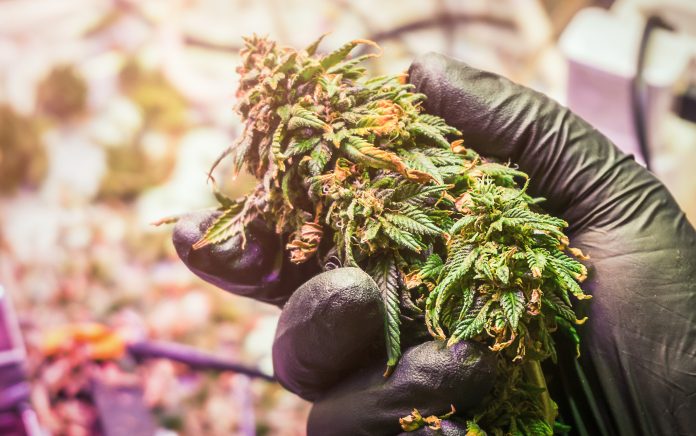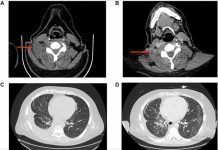David Hardstaff of BCL’s Cannabis Law & Regulatory team considers the success of the UK’s legalisation of medicinal cannabis products
The results are in – The UK’s Advisory Council on the Misuse of Drugs (ACMD) published its assessment on the impact of the rescheduling of cannabis-based products for medicinal use (CBPMs) in humans in November 2020. As patient groups and organisations digest the Council’s findings, I consider the key points to take away from the report.
The long road to legalisation through rescheduling
In the UK, cannabis, until relatively recently, has been treated primarily as a recreational drug, with evidence of risk to health through misuse. In response to increasing public pressure and a growing body of evidence of the efficacy of cannabis-based medicines, in 2018, CBPMs were rescheduled into Schedule 2 of the Misuse of Drugs Regulations 2001, making them available for prescription in certain limited circumstances. As with all medicines, CBPMs may be licensed, through receiving marketing authorisation from the Medicines & Healthcare products Regulatory Agency, or unlicensed and supplied in accordance with a prescription by a specialist medical practitioner.
Access to CBPMs remains tightly controlled, so much so that critics have argued the majority of UK patients are unable to benefit from medicines widely available in other countries. This has led to a fierce debate concerning not just the safety and efficacy of CBPMs, but also the political, economic, and social factors underpinning the role of cannabis in 21st century Britain.
While there has been much debate and reporting in relation to patient access, the ACMD report focuses on the available data in attempting to assess the impact of the rescheduling of CBPMs.
The Council’s conclusions
The report concludes that:
• The impact of the rescheduling of CBPMs has been gradual, and that there hasn’t been sufficient time to reach a conclusive understanding of the changes. This has been exacerbated by the COVID-19 pandemic, which has impacted data collection.
• Only three licensed CBPMs are now available in the UK and approved by the National Institute for Health and Care Excellence. Around 800 patients a year received a licensed CBPM from 2017–2019, with evidence of an increase in prescriptions in the four to six months following November 2019.
• More starkly, it is believed that no more than four patients have been prescribed unlicensed CBPMs through the NHS. The number of patients privately prescribed unlicensed CBPMs is thought to be much higher, but the data is unclear.
• The price of unlicensed CBPMs continues to be high when compared to licensed medicines. Although the market is still in its infancy, the report notes that there is little interest from manufacturers of unlicensed CBPMs to apply for marketing authorisation.
• Instances of adverse drug reaction reporting associated with CBPMs have increased since the rescheduling of CBPMs; however, this increase was from extremely limited levels of reporting in 2017. The report concludes that it is simply too soon to draw conclusions about the safety of these products from the limited data available.
• As for the illicit use of cannabis, it is too soon to say whether the rescheduling of CBPMs has had any impact. There is little evidence of the diversion of CBPMs into the illicit market. However, several police forces reported observing illicit cannabis being mislabelled as a medicinal product.
Recommendations and reactions
The report makes the following recommendations:
- That the ACMD should be commissioned to conduct a further assessment over the next two years;
- That the availability of a CBPM patient registry should be recognised as crucial for future assessment of the impact of the rescheduling of CBPMs;
- That research should be commissioned to assess the impact of the rescheduling of CBPMs on public knowledge of, and attitudes towards, cannabis and CBPMs, and to explore safety, quality and efficacy of CBPMs and;
- That government departments should conduct a full review of international approaches to legislation that facilitates the medicinal use of cannabis-based medicines.
Reactions to the report have been generally positive. Science-led charity, Drug Science, in its response to the report, endorsed the ACMD’s conclusion that the development of a CBPM patient registry is necessary, describing this as “a crucial step in allowing for a careful analysis of the extent and pattern of prescription of CBPMs, and their benefits and risks.”
Drug Science has been at the forefront of calls for wider and more effective collection of data relating to the use of CBPMs. Its 2020 initiative, Project TWENTY21, was launched with the ambition of collecting data from up to 20,000 medicinal cannabis patients over a two-year period. Project TWENTY21 represents a good example of the potential gains to be made through better collaboration between government departments and the private sector.
Running themes and lessons
The ACMD’s recommendation that government departments should review international approaches is also particularly welcome. There has long been a perception of reluctance on the part of government departments and agencies to recognise evidence from other, often comparable, jurisdictions. This is not an approach the ACMD has taken, citing international evidence supporting the therapeutic use of CBPMs as part of its assessment.
The report also suggests that there is emerging evidence of a divergence between medicines available to NHS patients and those seeking treatment privately. To date, only a handful of NHS patients have received prescriptions for unlicensed CBPMs, whereas the number of private prescriptions is thought to be in the hundreds, if not thousands (the data is incomplete). This disparity suggests there are likely to be many patients with a genuine need who are unable to access treatment through the NHS, and also unable to afford the high costs of private prescriptions. Patients across the board have been further impacted as a result of the pandemic, which led to the NHS temporarily suspending the processing of private prescriptions of unlicensed CBPMs.
If there are any central themes to be taken from the report, it is that more research is needed and that government departments, agencies, and the private sector need to do more to record, share, and utilise available data. The establishment of a CBPM patient registry will certainly be a step in the right direction. Whether it will be as wide-ranging as other initiatives in its scope remains to be seen. It seems unlikely that evidence from patients who have turned to the illicit market to self-medicate will be included, which could be a wasted opportunity to collect valuable data.
Patients, the Government, Big Pharma, and anyone with an interest in this progressive and exciting area of medicine, will hopefully have the Council’s next review to look forward to in two years’ time. Sadly, the pandemic may in the meantime continue to hinder efforts to assess the true impact of CBPMs. Hopefully, by the time the Council reports back again the picture will be clearer, making way for renewed optimism around cannabis-based medicines.












Most medical cannabis goes through a gamma radiation treatment because it’s so full of bugs and mold
It’s grown on mass and over fertilised with Cheep synthetic fertilizer
I tried a company called sapphire/ curaleaf and it was terrible quality the worst I have ever had in 30 years
Who can I complain to ?